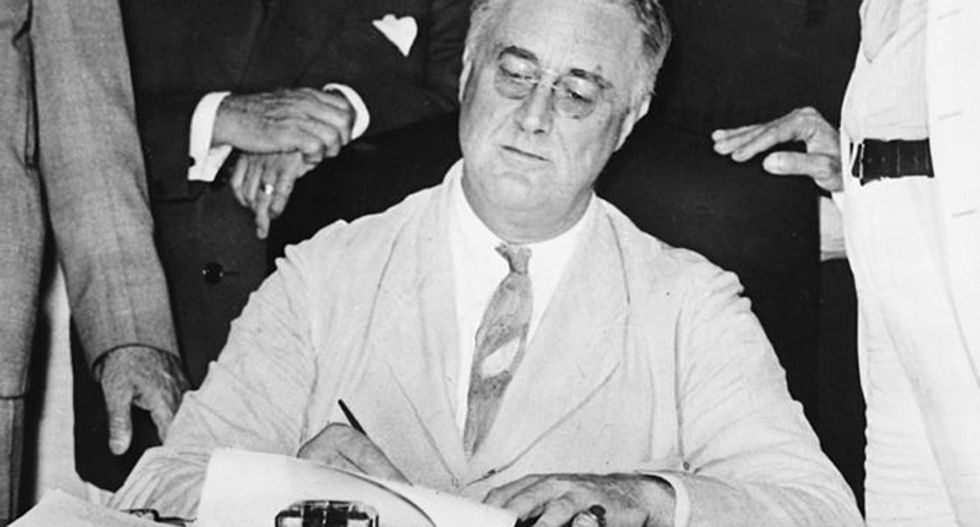Rep. Byron Donalds, his gigantic Jim Crow myth and a forgotten fact about Black voters
As we celebrated Juneteenth last week, a political argument is brewing about the legacy of the Jim Crow era.
It’s important, generally, to provide greater scrutiny of that era, lest we repeat, or even in some cases maintain, the legacy of that time frame in America.
But Rep. Byron Donalds (R-FL) ignited an acute firestorm of opposition and support at a June political event.
NBC reported that Donalds, a Trump campaign surrogate and potential vice presidential short-lister, “suggested that by embracing Democrats, circumstances have worsened for Black people. He pointed to programs enacted by President Lyndon Johnson in the 1960s that included expanding federal food stamps, housing, welfare and Medicaid for low-income Americans.
RELATED ARTICLE: A surprising contender surfaces in race to be Trump's VP pick
“‘You see, during Jim Crow, the Black family was together. During Jim Crow, more Black people were not just conservative — Black people have always been conservative-minded — but more Black people voted conservatively,’ Donalds told the audience Tuesday.”
Critics listed a myriad of horrors from the Jim Crow era, from KKK violence to curtailed voting rights to unconstitutional discrimination. Donalds defended himself, saying his remarks were only limited to Black families.
I researched whether Black people really “voted conservatively” during the Jim Crow era.
Bottom line: Donalds’ assertion is not supported by the evidence.
As Daphney Douglas at Salve Regina University discovered in her thesis, African Americans overwhelmingly voted for Democrat Franklin Delano Roosevelt in 1936, well before the 1960s. Proquest found that 71 percent of African Americans voted Democratic in that election, according to news reports.
Douglas lists the actions that Republican Herbert Hoover engaged in that drove African Americans from the Republican Party, such as the Supreme Court nomination of John Parker.
 President Franklin D. Roosevelt signs the Social Security Act . (FDR Library Digital Collection.)
President Franklin D. Roosevelt signs the Social Security Act . (FDR Library Digital Collection.)
African Americans tended to vote for Republicans before Hoover on the basis of civil rights issues typically against the conservative Democrats who pushed for segregation.
ALSO READ: ‘They could have killed me’: Spycraft, ballots and a Trumped-up plot gone haywire
But for Northern liberal Democrats, African American voters clearly felt differently.
Donalds is also mistaken about the source of African American poverty. Research by scholars at the Griswold Center for Economic Policy Studies in 2022 found that “although Black wealth growth outpaced that of white Americans’ between 1870 and 1930, the rate of convergence in these years lags far behind what would be expected had the two groups enjoyed equal conditions for wealth accumulation. Indeed, the historical record is rife with instances of expropriation of Black wealth, exclusion of Black Americans from the political process, and legally sanctioned segregation and discrimination in land, labor, and capital markets. All of these factors likely contributed to sluggish convergence over this period.”
Moreover, the programs Donalds blames for African American poverty aren’t responsible for that.
The Griswold Center scholars found: “During the 1960s through the 1980s, convergence regains speed, exceeding what would be predicted by our equal-conditions benchmark. The dismantling of Jim Crow through Black activism and civil rights legislation, expansions of the social safety net, and improved labor standards during this period may have boosted wealth-accumulating conditions for Black Americans.
Although the wealth gap remained sizable in these decades, it remained on track to converge. From today’s vantage point, however, these gains were short-lived. Starting in the 1980s, we document a widening of the racial gap in capital gains as well as a complete stalling of income convergence. These forces have caused the wealth gap to leave the convergence path altogether and to start increasing again.”
The economic numbers show that problems emerged when the beneficial policies of the 1960s were rolled back in the 1980s.
But he and I disagree about the legacy of Jim Crow. Black families were not better off economically during that dark time. The policies of the 1960s closed the racial gap in earnings but were rolled back in the 1980s. And African American support of Democrats began decades earlier than Donalds claims.
John A. Tures is a professor of political science at LaGrange College in LaGrange, Georgia. His views are his own. He can be reached at jtures@lagrange.edu. His “X” account is JohnTures2.


